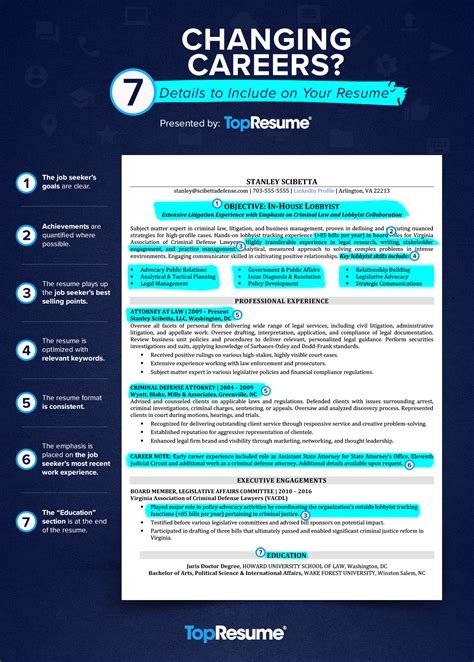Career Change? Resume Writing Tips To Stand Out

Changing careers can be a daunting task. One of the first steps to take is to update your resume to reflect your new career goals. A well-written resume can help you stand out from other applicants and land the job of your dreams. Here are some tips to help you create an impressive resume that will catch the attention of potential employers.
1. Start with a Strong Heading
Your heading should include your name, contact information, and a professional title that reflects your new career goals. This will help employers quickly identify who you are and what you can offer.
2. Tailor Your Resume to the Job
Review the job posting and customize your resume to match the skills and experience required for the job. This will show employers that you understand the job requirements and are a good fit for the position.
3. Highlight Your Transferable Skills
Transferable skills are skills that you have developed in one career that can be applied to another career. These skills can include communication, problem-solving, and leadership skills. Highlighting your transferable skills can help employers see how you can add value to their organization.
4. Use Keywords
Many employers use applicant tracking systems (ATS) to screen resumes. Using keywords from the job posting can help your resume get past the ATS and into the hands of a human recruiter.
5. Quantify Your Achievements
Use numbers and statistics to quantify your achievements. This can help employers see the impact you’ve had in your previous roles and how you can contribute to their organization.
6. Keep it Concise
Your resume should be no longer than two pages. Use bullet points and short sentences to convey your skills and experience. Keep in mind that employers have limited time to review resumes, so make sure your resume is easy to read and understand.
7. Use Action Words
Start each bullet point with an action word to make your accomplishments stand out. Action words such as “managed,” “created,” and “improved” can help convey your achievements and responsibilities.
8. Include Relevant Education and Training
List any relevant education and training that you have received. This can include certifications, degrees, and courses. Make sure to highlight how your education and training can be applied to your new career.
9. Get Feedback
Have someone else review your resume to get feedback on its content and formatting. This can help you catch errors and make sure your resume is as strong as possible.
10. Be Honest
Finally, be honest about your skills and experience. It can be tempting to exaggerate your accomplishments, but this can backfire if you are hired for a job you are not qualified for.
Conclusion
Updating your resume to reflect your new career goals can be a challenging task, but following these tips can help you create a resume that stands out from the crowd. Remember to tailor your resume to the job, highlight your transferable skills, and quantify your achievements. With a well-written resume, you can land the job of your dreams and take the first step toward a fulfilling new career.
FAQs
1. How long should my resume be?
Your resume should be no longer than two pages. Keep it concise and easy to read.
2. Should I include my education on my resume?
Yes, list any relevant education and training that you have received. This can help show employers how your education and training can be applied to the job.
3. Should I customize my resume for each job I apply for?
Yes, customize your resume to match the skills and experience required for the job. This can help show employers that you understand the job requirements and are a good fit for the position.
4. How important are keywords in my resume?
Keywords are important because many employers use applicant tracking systems (ATS) to screen resumes. Using keywords from the job posting can help your resume get past the ATS and into the hands of a human recruiter.
5. Should I include references on my resume?
No, you do not need to include references on your resume. Employers will ask for references if they are interested in hiring you.
